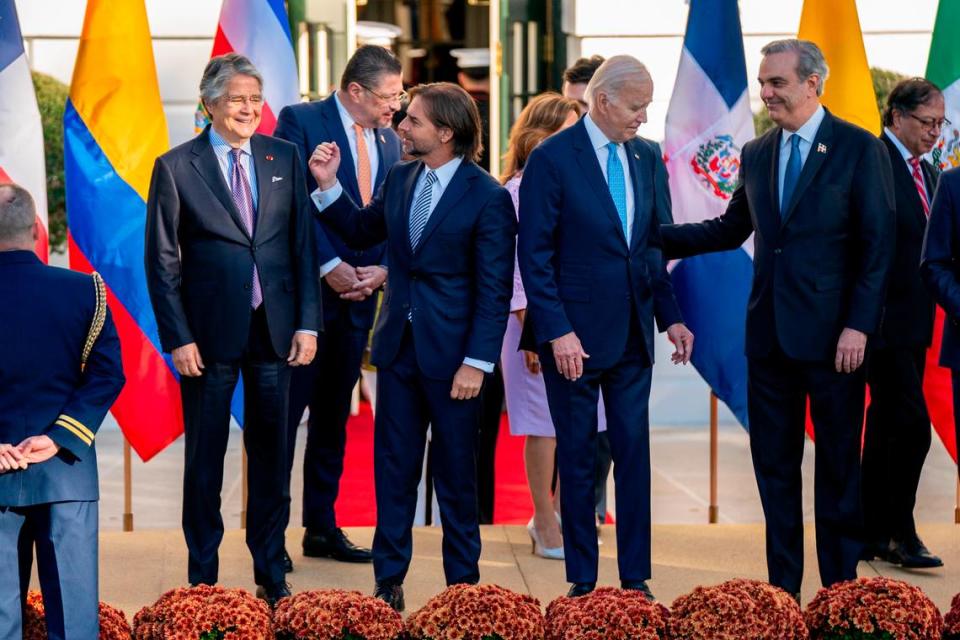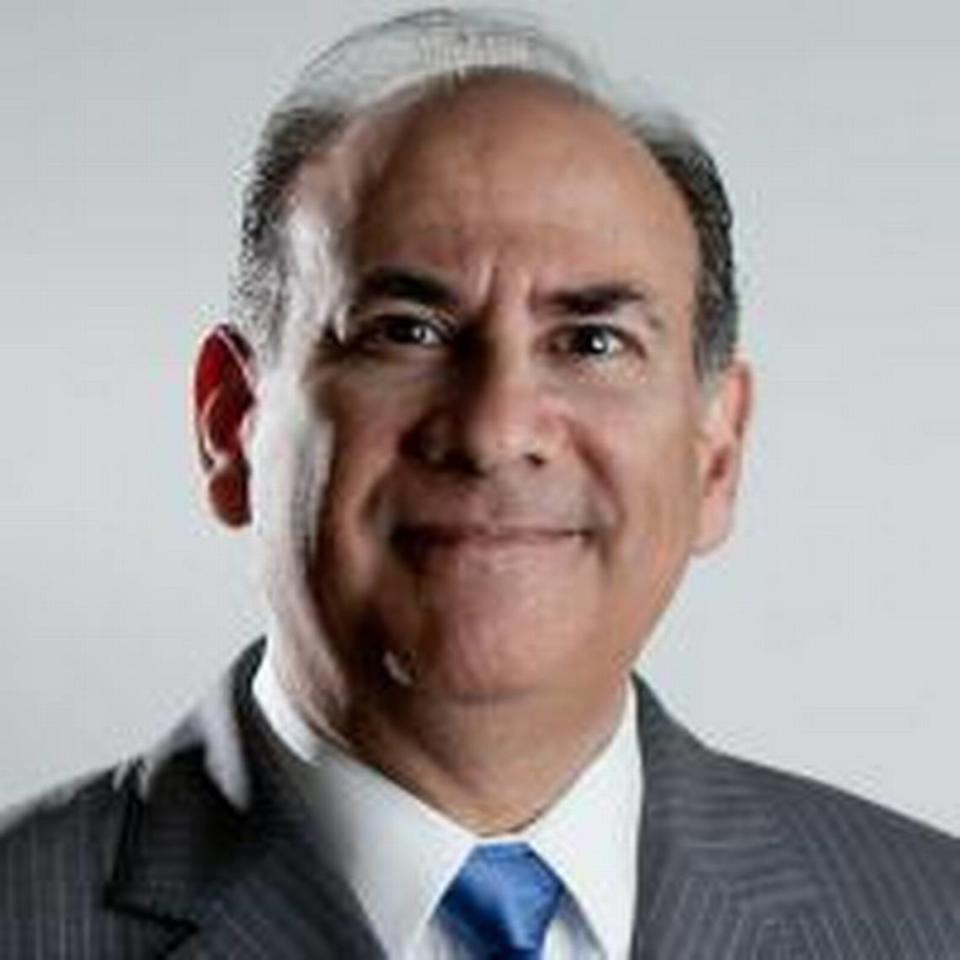The strong U.S.-Dominican partnership is good news for both countries | Opinion
- Oops!Something went wrong.Please try again later.
From Mexico through Central America and the Andes, U.S. policymakers are wrestling with challenges critical to their prosperity and security.
However, the Dominican Republic is quietly transforming itself and emerging as a leading friend of the United States as it tackles poverty and corruption.
Give credit to democratic leader Luis Abinader, who will begin a second term next month after a sweeping victory primarily fueled by the creation of a boom in tourism and exports and the promotion of social inclusion by tackling poverty and corruption.
President Abinader’s track record has also won bipartisan acclaim in Washington—not just for what he does but also for how he does it. For example, in the days after he won reelection with 57.4% of the votes and his party achieved massive majorities in both houses of the Dominican Congress, Abinader committed to seeking a dialogue with opposition parties and civil society on the pace and priorities of his reform agenda.
Abinader also pledged to seek constitutional reform ensuring the independence of the national prosecutor—the “Ministerio Público.” The prosecutor’s team is headed by a respected jurist appointed by Abinader in 2020. The jurist has empowered an anticorruption unit to root out corruption committed by current or former officials, regardless of their political affiliation.
The Dominican people understand Abinader’s strategy, which is to bolster the rule of law and fight corruption, which will attract foreign investment, empower free enterprise, create jobs, and build a more equitable society. According to the “2023 Capacity to Combat Corruption Index,” produced by the Americas Society/Council of the Americas, the DR recorded the best improvement in Latin America, rising to 5th place among the 15 countries rated—up from 13th place in the 2020 rankings.
But much of what the Dominican people have accomplished is at risk due to political, economic and social instability in neighboring Haiti. The DR already bears the cost of schooling and health care for many thousands of Haitian migrants, even as it works to control a 250-mile border. “Smart fencing,” surveillance technology, and personnel have tamped down the smuggling of weapons and drugs and the exploitive trafficking in people. Meanwhile, the recent hopeful deployment of a UN-sponsored police mission is a move toward political stability.
The Dominican economy is projected to grow by 5.4% in 2024, according to the International Monetary Fund—the fastest growth rate of any Latin American country. Overall, foreign direct investment reached $4 billion in 2022 and will approach $6 billion by 2028. The Dominican private sector and public officials are retooling their economy to be a trusted partner with the U.S. “nearshoring” strategy to build secure and stable supply chains in microchips, biomedical products, and advanced manufacturing.
Aiming to capitalize on impressive economic gains already achieved by the Dominican people, earlier this month, President Abinader committed his government to do everything necessary to double the country’s economy by 2036.
Under Abinader’s anti-drug and security team, the Dominican Republic is becoming a much more vigilant and reliable partner in the fight against illicit narcotics.
In bipartisan legislation, the U.S. Congress has recognized the Dominican Republic as “a key ally in the Americas, [that] plays a central role in building more secure supply chains integrated with the U.S. market and in fighting corruption and drug trafficking.” In a spending bill signed by President Biden in March, Congress applauded the effectiveness of Dominican counternarcotics and anticorruption efforts and appropriated additional U.S. funds to bolster these programs.
Still, at least one-fourth of the record 10 million tourists who visited the DR last year were from the U.S. This, coupled with robust trade, manufacturing, and security partnerships, is a vital partnership for both the DR and the U.S.
Lincoln Diaz-Balart is a former Republican member of the U.S. House of Representatives (1993-2011). Roger Noriega was U.S. ambassador to the Organization of American States. Both authors are registered with the U.S. Department of Justice as advisors to Dominican President Luis Abinader.


